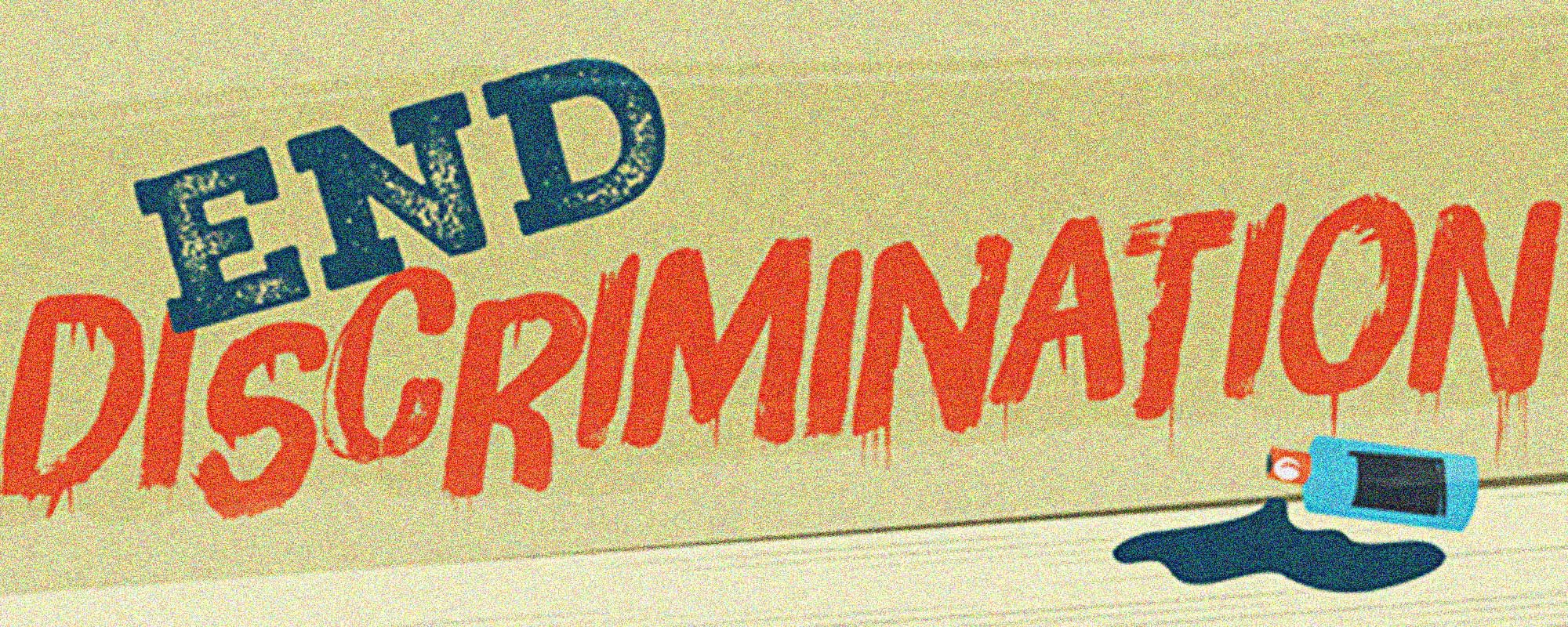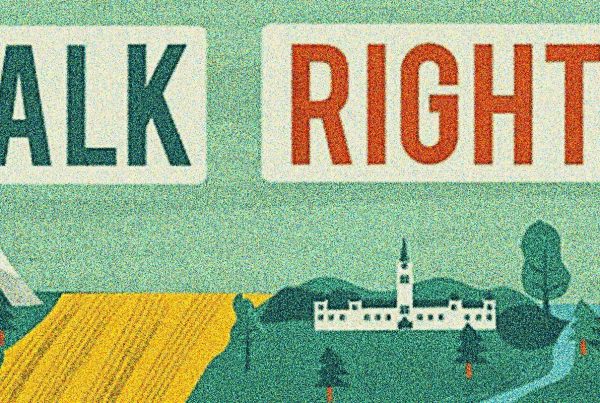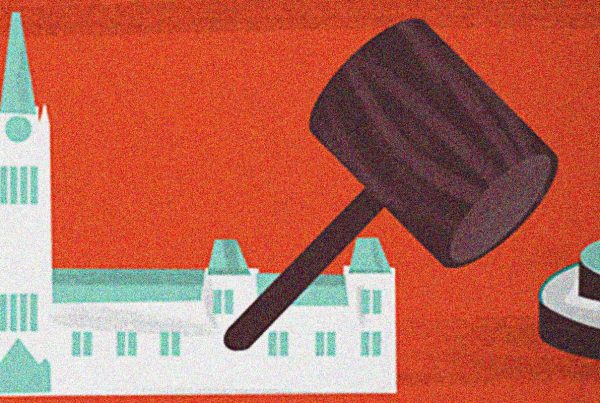Like all content on this website, this document is not legal advice and is provided solely for the purpose of public information and education. If you are facing a legal issue or have a question about your specific situation, you should consider seeking independent legal advice. You can find a list of legal clinics and other resources to help you here. Please note that this material was last updated in 2015.
The CCLA is a national organization that works to protect and promote fundamental human rights and civil liberties. To fulfill this mandate, the CCLA focuses on litigation, law reform, advocacy and public education. Our organization is not a legal clinic. As such, we are typically not in a position to provide members of the public with legal advice or direct legal representation. However, we do try to provide general legal information and appropriate referrals where possible. For questions about this document, email publicenquiries [at] ccla [dot] org.
How can Trans Persons Change the Name on their Identification Documents?
This guide is focused on issues relating to how trans persons can change the name used on their identification documents. For information on how trans persons can legally change the sex designation on their birth certificate, see this guide.
This page is intended to help trans persons with issues related to changing the name used on their identification documents. As such, some of this information may not be helpful to those seeking to change their name for another reason, like marriage or divorce.
For those seeking in-person assistance, Pro Bono Students Canada have launched the Trans ID Clinic, in partnership with Blakes, Cassels & Graydon LLP and SKETCH, a Toronto-based arts organisation for vulnerable youth, to provide free legal information and assistance with name change (and gender marker) change applications.
Note: Every effort has been made to ensure comprehensiveness and accuracy (as of January 2015). However, this FAQ may not fully reflect the current state of the law.
We use the term “trans” to include anyone who does not identify with the sex designation they were assigned at birth.
Questions addressed in this FAQ:
- Where do I apply to change my name?
- What documents do I need for my name change application?
- Can the government refuse my request for a name change?
- Will my name change be made public?
- Can I apply if I am younger than 18 or 19?
- Can I apply even if I was born outside of my current province/territory?
- What document will I get to prove my new name?
- What other documents can I change to reflect my new name?
You can download a PDF of this document here: CCLA Change of Name FAQ.
Where do I apply to change my name?
Apply to the government agency responsible for birth registration in each province and territory. Those agencies are also responsible for name change applications. Most provinces and territories will process your legal name change application if you was born there and/or currently live there. Some jurisdictions have a minimum amount of time that you have to live there, however (discussed below).
Forms and general information are available on the websites of the relevant agency of each province or territory:
| Alberta | Service Alberta |
| British Columbia | Vital Statistics Agency |
| Manitoba | Vital Statistics Agency (includes changes made in August 2014) |
| New Brunswick | Service New Brunswick (see also useful pamphlet here) |
| Newfoundland | Service NL |
| Nova Scotia | Service Nova Scotia (see also useful pamphlet here) |
| Ontario | Service Ontario |
| Prince Edward Island | Department of Health and Wellness (Vital Statistics) |
| Quebec | Directeur de l’état civil |
| Saskatchewan | eHealth Saskatchewan (Vital Statistics) |
| NWT | Health and Social Services (Vital Statistics) |
| Yukon | Health and Social Services (Vital Statistics) |
| Nunavut | Department of Health (only general information is available) |
Can I apply even if I was born outside of my current province/territory?
Yes. All provinces and territories allow residents to apply, even if you were born in another province, territory or country. All (except Alberta) require that you have lived there for a minimum period of time. Some jurisdictions have additional requirements, e.g. that you are a Canadian citizen or permanent resident. Here are the details:
| Alberta | Minimum residency period: no minimum, but must be an Alberta resident |
| British Columbia | Minimum residency period: 3 months |
| Manitoba | Minimum residency period: 3 months |
| New Brunswick | Minimum residency period: 3 months |
| Newfoundland and Labrador | Minimum residency period: 3 months |
| Nova Scotia | Minimum residency period: 1 year |
| Ontario | Minimum residency period: 1 year |
| Prince Edward Island | Minimum residency period: 3 months |
| Quebec | Minimum residency period: 1 yearOnly available if you are a Canadian citizen |
| Saskatchewan | Minimum residency period: 3 months |
| Northwest Territories | Minimum residency period: 3 monthsOnly available if you are a Canadian citizen, permanent resident, or otherwise legally allowed to be in Canada |
| Yukon | Minimum residency period: 3 months |
| Nunavut | Minimum residency period: 1 year |
What documents do I need for my name change application?
This varies from place to place. Many provinces and territories have detailed descriptions of the documents you will need. Please consult the relevant provincial or territorial agency (listed above), or the applicable legislation/regulations, for a full list. In many cases, the forms that you need to fill out will also list the documentation you have to provide.
In general, some of the common documentation requirements include:
- Proof of identity.
- An affidavit or declaration setting out your personal information such as: name, address, marital status, reasons for seeking a name change, details of any previous name changes, and details of any criminal convictions or acquittals.
- Original copies of your birth certificate if born in Canada, or copies of immigration documents if born outside Canada. (Saskatchewan requires original birth certificates if you were born in the United States.)
- The consent of another person, in some circumstances (for example, your spouse might need to consent; or, if you are applying for a minor, any other custodial parent may need to consent, and the minor may need to consent).
- A declaration from a “sponsor” (who cannot be related to you) who has known you for two years and can confirm your identity (New Brunswick only).
- Fingerprints by a law enforcement agency in some cases (Alberta and Nova Scotia only, unless you are under 12 years old; and British Columbia and Manitoba only, unless you are under 18).
- Criminal record checks (Ontario and British Columbia only).
Note that all provinces and territories charge a fee – check with the relevant agency to determine what the current fee is.
The full list of necessary documents and other requirements is available in the statutes and regulations, which can be consulted for free on http://canlii.org (links in the chart below). Note that a province may have policies that are not in the legislation. For more information about requirements, check with the government agency responsible.
| Alberta | Vital Statistics Act, section 24 for full list. |
| British Columbia | Name Act, sections 6.1, 7 |
| Manitoba | The Change of Name Act, section 2(2) |
| New Brunswick | Change of Name Act, section 4(2) (different rules for minors than for adults) |
| Newfoundland | Change of Name Act, 2009, section 10 |
| Nova Scotia | Change of Name Act, section 12 (copies of forms and the declaration are available in the Regulations) |
| Ontario | Change of Name Act, section 6(2) (including circumstances in which a police records check is required) |
| Prince Edward Island | Change of Name Act, section 7 |
| Quebec | Civil Code of Quebec, article 61 (full list of requirements in Regulations, sections 2 and 4) |
| Saskatchewan | The Change of Name Act, 1995, section 6 |
| NWT | Change of Name Act, section 9 (and Form 5 in Schedule A to the Regulations) |
| Yukon | Change of Name Act, section 3 |
| Nunavut | Change of Name Act, section 9 |
Can the government refuse my request for a name change?
In some cases, yes. Most provinces and territories have technical registration requirements. For example, a name usually must contain a first and last name, must use the Roman alphabet, and not contain any numbers or special characters (with some exceptions, such as hyphenated last names). If you did not meet these technical requirements, or if you missed some other requirement (e.g. you did not include a required document), your application can be rejected.
Most provinces and territories may also refuse your name change application on substantive grounds, including if:
| Alberta | Your new name would cause confusion Your new name would embarrass a person Your new name would defraud or mislead the public Your new name would be otherwise objectionable |
| British Columbia | Your new name would cause confusion or mistake Your new name would embarrass a person Your new name would be otherwise objectionable You want to change your name for an improper purpose |
| Manitoba | Your new name would cause mistake or confusion You have made frequent name changes You want to change your name for an improper purpose |
| New Brunswick | Your new name would cause confusion or mistake You have made frequent name changes You want to change your name for a fraudulent or improper purpose |
| Newfoundland and Labrador | Your new name would cause mistake or confusion Your new name would be undesirable in the public interest You want to change your name for an improper purpose You have made frequent name changes |
| Nova Scotia | Your name change is obtained through fraud, duress or misrepresentation |
| Ontario | You want to change your name for an improper purpose |
| Prince Edward Island | Your name change is obtained through misrepresentation You want to change your name for a fraudulent or unlawful purpose |
| Quebec | None specified. |
| Saskatchewan | Your name change would not in the public interest |
| Northwest Territories | Your new name would cause confusion or embarrassment Your new name would defraud or mislead the public You want to change your name for a fraudulent or unlawful purpose |
| Yukon | Your name change is obtained through misrepresentation You want to change your name for a fraudulent or unlawful purpose Your new name contains more than one hyphen |
| Nunavut | Your new name would cause mistake, confusion or embarrassment You want to change your name for an improper purpose Your new name is otherwise objectionable |
Will my name change be made public?
Likely not. The default rule in all provinces and territories (except Nunavut) is that name changes must be published, either in an official publication (like the provincial “Gazette”) or, for Quebec, in a local newspaper. (Newfoundland and Labrador does not publish name changes if the only thing that is changing is your first name.) Some of these publications, including the official Gazettes, are available online or from local libraries.
However, all provinces as well as the Northwest Territories have exemptions which could be used by trans persons.
Quebec and Ontario expressly waive name changes related to change of sexual identity. Other provinces do not expressly exempt trans persons from the publication requirement. Trans persons seeking an exemption must obtain it under general “public interest” waiver. The grounds you can rely on for an exception in each province and territory include:
| Alberta | You are commonly known under the name applied for You would be unduly prejudiced, embarrassed or harmed by publication; it would cause you undue hardship. The change of name is for a minor (under 18) |
| British Columbia | Publication is not “in the public interest” |
| Manitoba | You are commonly known under the name applied for You would be unduly prejudiced, embarrassed or harmed by publication; it would cause you undue hardship Publication is not “in the public interest” |
| New Brunswick | You are commonly known under the name applied forY ou would be unduly prejudiced, embarrassed or harmed by publication; it would cause you undue hardship Publication “would serve no useful purpose” |
| Newfoundland and Labrador | You are commonly known under the name applied for You would be unduly prejudiced, embarrassed or harmed by publication; it would cause you undue hardship The change of name is for a minor (under 19) |
| Nova Scotia | You are commonly known under the name applied for You would be unduly prejudiced, embarrassed or harmed by publication; it would cause you undue hardship Publication is not “in the public interest” The change of name is for a minor (under 19) |
| Ontario | Express exemption for trans persons |
| Prince Edward Island | You would be unduly prejudiced, embarrassed or harmed by publication; it would cause you undue hardship |
| Quebec | Express exemption for trans persons |
| Saskatchewan | You would be unduly prejudiced, embarrassed or harmed by publication; it would cause you undue hardship Publication is not “in the public interest” The change of name is for a child (under 15) |
| Northwest Territories | You are commonly known under the name applied for.You would be unduly prejudiced, embarrassed or harmed by publication; it would cause you undue hardship The change of name is for a minor (under 19) |
| Yukon | None specified. |
| Nunavut | None specified. |
Note that, in addition to publication requirements, many provinces and territories will tell public authorities (such as the RCMP or local police) about your name change.
Can I apply if I am younger than 18 or 19?
Generally, no. You can only apply to change your name if you are of “the age of majority”, which is 18 in Alberta, Manitoba, Ontario, Prince Edward Island, Quebec, and Saskatchewan; and 19 in British Columbia, New Brunswick, Newfoundland and Labrador, Nova Scotia, Northwest Territories, Yukon, and Nunavut. In Nova Scotia, a law to lower the age for a change of name or sex designation to 16 years old was recently passed but is not yet in force. There are sometimes exemptions for minors who are/were married or have custody of a child.
All jurisdictions permit parents or guardians to apply on behalf of minors, though some conditions apply, such as obtaining permission of the minor if they are above a certain age (usually 12) and/or obtaining permission of other parents or guardians. The precise consent requirements vary in each province or territory.
What document will I get to prove my new name?
The government agency responsible for name changes will note the change on the register. In most jurisdictions, they will issue you a name change certificate. The government agency will also issue you a new birth or marriage certificate, if you were born or married in that jurisdiction.
If you were born or married in a different Canadian province or territory, the agency changing your name will usually notify the agency of that province or territory. You will have to apply to that agency for a new birth or marriage certificate.
If you were born or married in a foreign country, some provinces and territories (Manitoba, Newfoundland, Prince Edward Island, Yukon) will forward proof of your name change to the authorities in that country, but only with your consent. Nunavut will forward the change of name information to the federal Deputy Minister of Citizenship and Immigration.
The Saskatchewan vital statistics office will also forward proof of your name change to various public agencies responsible for social insurance numbers, driver’s licensing, and immigration documents.
What other documents can I change to reflect my new name?
Several jurisdictions (Alberta, British Columbia, Manitoba, Newfoundland and Labrador, Nova Scotia, Ontario, Northwest Territories, Yukon, and Nunavut) expressly grant you the right, following a legal name change, to change the name on any documents, public or private. Quebec provides an express entitlement to demand documents bearing a previous name be corrected, but does not specify whether this includes private documents. New Brunswick provides for public documents to be changed.
Note that some documents, like passports, are issued under federal legislation. In order to change the information on a passport, a birth certificate or proof of Canadian citizenship showing the new information will be required.
There is usually a fee associated with changing the name on documents.
For more information:
In Nova Scotia, see this guide by Capital Health for persons who are transitioning, which includes a legal guide and community resources (note that the guide was, at the time of publication, not updated to reflect recent changes to the law). In Quebec, see this similar guide provided by Santé Trans Health.
About the Canadian Civil Liberties Association
The CCLA is an independent, non-profit organization with supporters from across the country. Founded in 1964, the CCLA is a national human rights organization committed to defending the rights, dignity, safety, and freedoms of all people in Canada.
For the Media
For further comments, please contact us at media@ccla.org.




